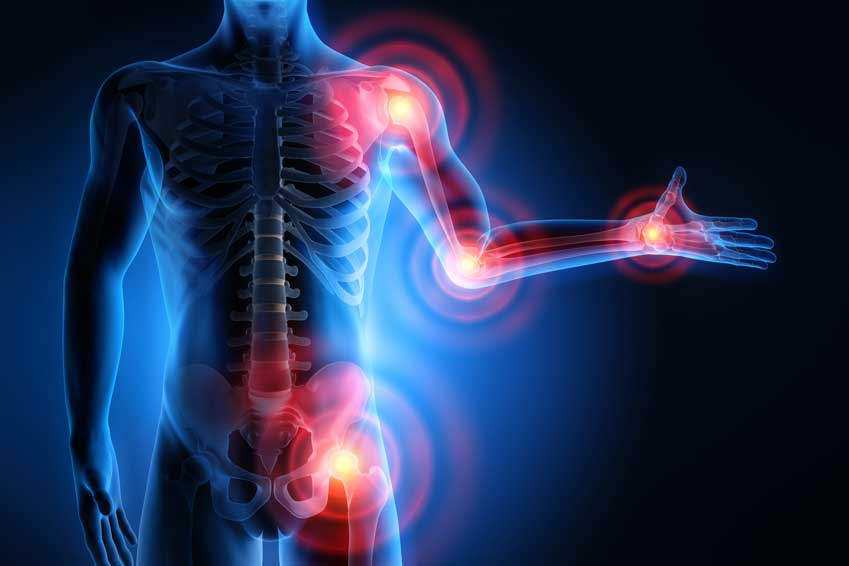Over the past several years, the link between dental health and overall health has been well established.
The American Journal of Preventative Medicine published a study showing evidence that periodontal (gum) therapy could reduce the cost of treating major diseases including Type II Diabetes and Coronary Artery Disease. The great news is, the connection between gum disease and Rheumatoid Arthritis (RA) is becoming clearer, paving the way for new ways to reduce its severity.
What is Rheumatoid Arthritis?
RA is a painful and debilitating disease that affects some 1.5 million Americans. It can be likened to your own joints, muscles, organs, etc., being treated like invaders from outside your own body.
While we often associate rheumatoid arthritis with the joints, RA can also attack the lungs, heart, ligaments, muscle and cartilage. It can lead to permanent disability.
It’s a disease that progresses rapidly. If left untreated (or not properly treated), roughly two-thirds of those with the condition are unable to work within just 10 years.
Here’s a video from everyday Health about signs and symptoms of RA…
The Bacterial Link
New research out of Johns Hopkins University has found a possible culprit. They’ve located a bacteria that is common in both gum disease sufferers and those with RA, but uncommon in otherwise healthy individuals (control group).
Watch this recent report from the Medical News Minute summarizing the study…
These bacteria appear to cause the production of a protein that may trigger the “overactive” immune response that causes the irreversible joint damage associated with RA.
“This research may be the closest we’ve come to uncovering the root cause of RA,” said Dr. Maximilian Konig, an author of the study, in an interview with Dentistry Today.
While a bacterial link had been suspected, researchers seem to have been “barking up the wrong tree” for a decade or so, as they focused on a completely different bacterial strain. But without those initial attempts to make the connection, the researchers may not have been able to take the research further to finally isolate the common factor in this type of bacteria.
What Does this Mean For Those Suffering From RA?
At this point, researchers are looking to prevention. Can they target this bacteria early, when it first appears in the patient’s gums? Can prevention and early treatment of gum disease prevent the onset of RA?
This requires collaboration among dental and medical professionals, and it speaks to the importance of oral care and health.
Whether or not targeting the bacteria after RA has developed will be beneficial to preventing further damage or eliminating RA is yet to be determined. But researchers are hopeful.
What Can You Do Now?
Research is ongoing, so we cannot state that this bacteria definitely causes RA, only that this is where the research seems to be leading us. In the interim, this is yet another reminder of how important oral health is to our overall health.
Something as terrible as rheumatoid arthritis could, start by something as “seemingly harmless” as missing your dentist appointment.
Be on the lookout for gum disease symptoms, which may include:
- Bad breath … the kind that isn’t fazed by brushing, mouthwash or mints
- Red/Swollen Gums
- Tender/Bleeding Gums
- Painful Chewing
- Loose Teeth
- Receding Gums
What Should You Do Next?
Often the most severe of these symptoms do not occur until the disease has progressed, so don’t neglect scheduling an appointment for a regular dentist checkup and cleaning.
When you have been diagnosed with RA, make sure your dentist is aware of this so that special precautions can be taken.
And of course, if you think you may already have RA, you should definitely talk to your physician about treatment and prevention of further damage.
Be on the lookout!




















